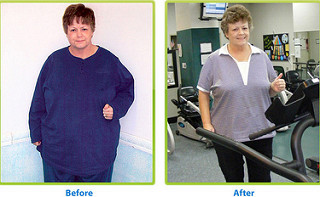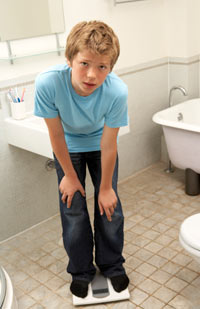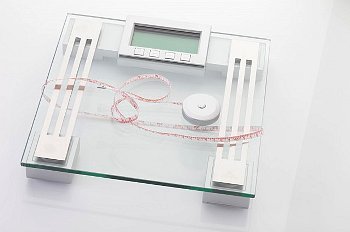The Number One Weight Loss Mistake
The number one weight loss mistake that dieters and emotional overeaters make has nothing to do with food--but it flavors everything.
The number one mistake people make when they are trying to gain control of emotional overeating is that they get mad at themselves and beat themselves up emotionally when things don't go as planned, when they have a slip,or when they overeat. Self-critical judgment is a dead-end place.
When you are judging yourself, you may tell yourself you're "wrong" or "bad" or "hopeless." You tell yourself that you "screwed up" and you'll have to "do better tomorrow."
Like children, adults don't thrive with punishment and negative words. Think about it. How often is the moment that you decide you've "blown it again" the very same moment you decide to go ahead and finish the bag of chips or the cookie dough or the what-ever-it-was you just got mad at yourself for eating?
Judgment and self blame are negative, closed, dead-end places.They do nothing to encourage creative problem solving, optimism, resourcefulness--the very things needed to move forward in your emotional eating journey. In fact, when we pile on the self-blame and the guilt, we're more likely to want to go to bed and pull the covers up over our head than we are to want to keep moving forward.
Curiosity is the opposite of judgment. Curiosity is the tool of problem solvers. Curiosity is one of the most powerful tools you can learn to use in making peace with food. Curiosity provides the power to ask questions that will open doors and propel you forward in a journey to take the power back from food and diet. Curiosity allows you to see options and opportunity and new solutions. It's the avenue for learning how to "do it differently."
It's impossible to be absolutely curious and full of self-judgment at the same time.
It might be hard to imagine changing old habits of self blame and that feeling that you "deserve" to be hard on yourself, but my clients are amazed at how powerful that shift feels when they learn how to make it--and how much momentum it provides.
Three ways to engage your curiosity:
Next time you are struggling with your eating / weight / relationship with food, try on the following questions. Work to suspend judgment and approach the questions and your answers with curiosity:
1. What do I know about what made today (this afternoon, this week) so difficult for me? What contributed to my struggles?
2. How was today (a difficult day) different from yesterday which was a little bit better? Is there anything I could learn from the difference that I might incorporate into my life or routine?
3. What was going on for me before I overate? What could I have done instead of eating?
Learning how to let go of self-blame and embrace a curious mindset is a necessary and powerful step in charting a successful weight loss journey. In fact, it's the first step I have my weight loss clients tackle, and I cover it in depth in my Emotional Eating Toolbox(TM)28-day self study program.
-
Diet Facing Lousy Choices
Its 11:30 AM. Youve been up since 5 oclock and the hunger meter is on
-
7 Must Know Facts to Build Your Strength Training Routine
Copyright 2005 strength-training-woman.comBuilding a strength trai
-
Quick Weight Loss Diets - Warnings For Consumers
There is a great deal of demand today for quick weight loss diets --
-
Weight Loss Program Consists Of Fats And Carbohydrates
Maintaining correct body weight reduces
-
Why not getting enough sleep is worse than you think…
Sleep serves both physical and psychological functions. We all
-
How to Lose 10 lbs Quickly: Try These 4 Tips
Losing weight might be the endeavor of y
- DON'T MISS
- Weight Loss Techniques For A Healthy Life
- The Hope Diet How To Nourish Your Belief In Your Ability To Lose Weight
- No Hang-ups Weight Loss Diet for Women
- Is Weight Loss Surgery As Dangerous As It Sounds?
- Here Are The Greatest Tips On How To Drop Extra Pounds
- 6 Ways In Which You Can Lose Weight
- Train Your SubConscious Mind To Lose Weight
- Weight Loss Tip: Dont Eat With Your Emotions
- Losing Weight With Medical Help In Old Age
- A Solution-Focused Approach to Weight Loss




